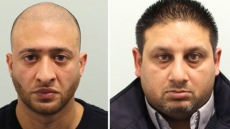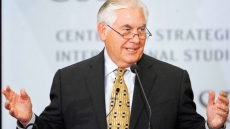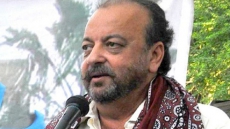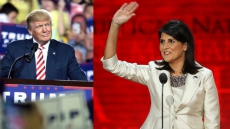TORONTO — Canadian travellers flying into the United States are subject to new security protocols implemented Thursday but airlines aren't saying much about what the screening procedures entail.
The U.S. Transportation Security Administration announced in June that there would be heightened security for international flights to the U.S. starting this fall.
The TSA said it would include increased screening of passengers and their cellphones and other electronic devices, as well as more security around planes and in passenger areas.
Air Canada spokesman Peter Fitzpatrick says the new measures are in effect for the airline but he wouldn't say what they consist of because security is handled by U.S. Customs and Border Protection.
Fitzpatrick says all of the airline's flights from Canada to the U.S. have passengers go through preclearance security, so they would encounter the new measures before taking off, not after landing in an American airport.
A representative from WestJet says the airline is working with the TSA to implement the new protocols and does not expect any immediate impact on Canadian passengers travelling to the U.S.
WestJet passengers go through preclearance security at some but not all of the Canadian airports the airline operates from.
Passengers on Porter Airlines flights will have to go through the new security checks once they land in the U.S., as Billy Bishop Toronto City Airport does not offer preclearance. The airline says passengers can expect the same check-in experience as before.

International airlines have been offering differing accounts of how they will implement the new security rules.
Long-haul carrier Emirates said it would conduct "passenger pre-screening interviews" for those travelling on U.S.-bound flights, along with other checks on electronics.
Air France said it would begin the new security interviews on Thursday at Paris Orly Airport and a week later at Charles de Gaulle Airport in Paris. The airline said the extra screening would take the form of a questionnaire handed to all passengers.
Other airlines, including Korean Air Lines Co., Asiana Airlines Inc., and Royal Jordanian, said they received permission to delay implementing the new protocols until next year.

TSA spokeswoman Lisa Farbstein wouldn't comment on the specifics of any of the new measures, but says they apply to all passengers flying into the U.S., including American citizens, and that approximately 2,100 flights a day will be impacted.





